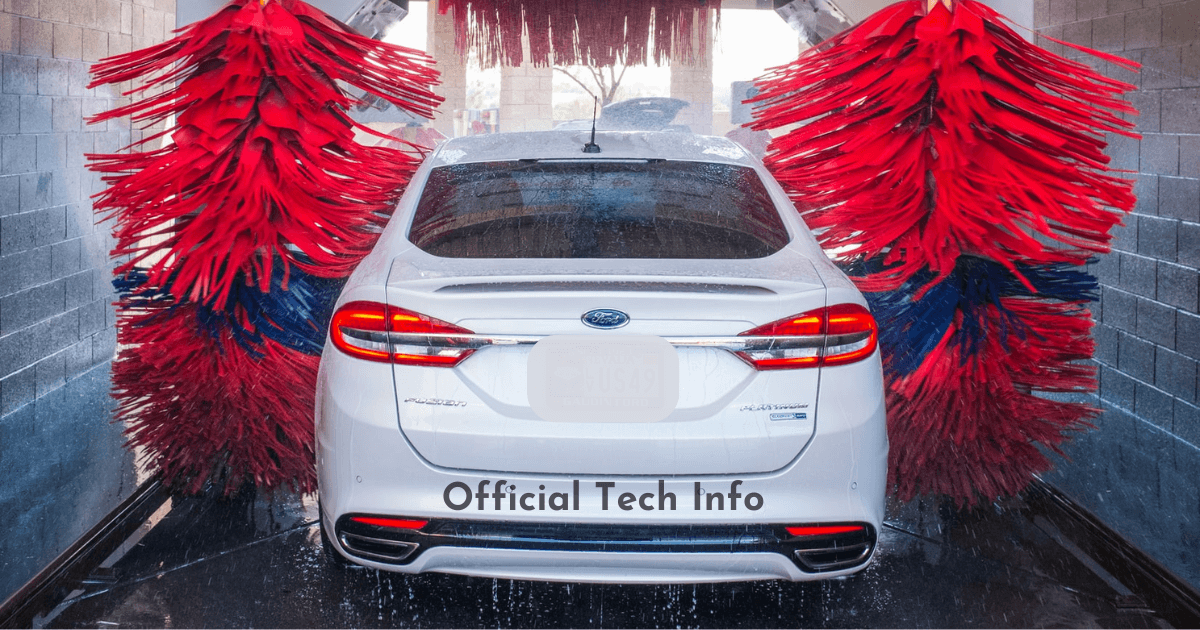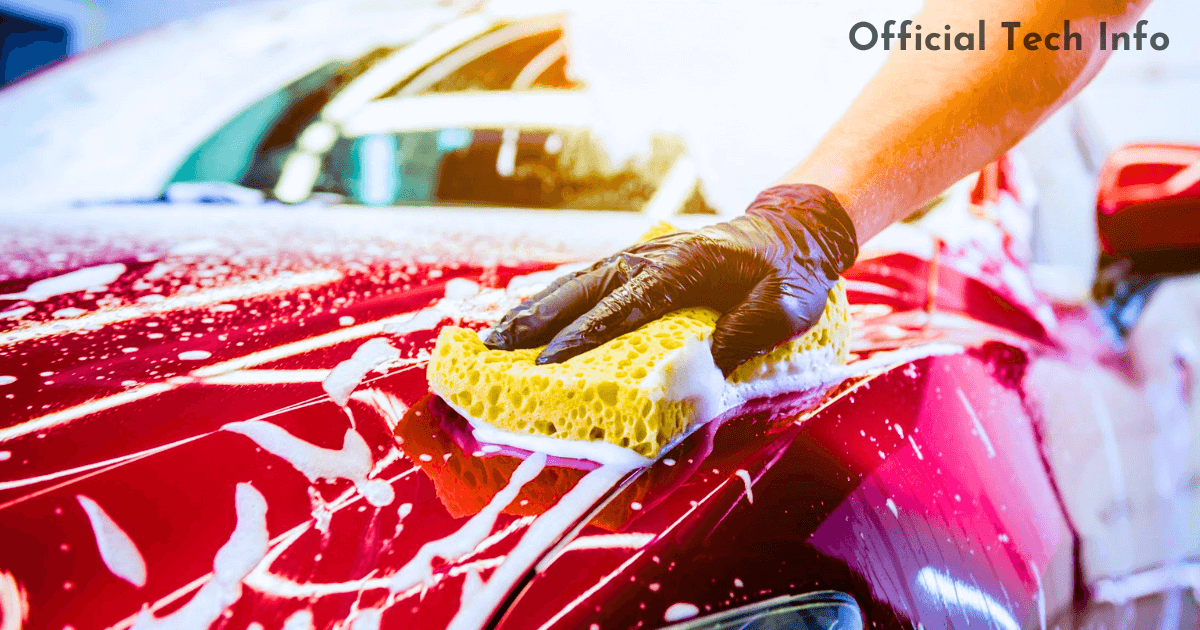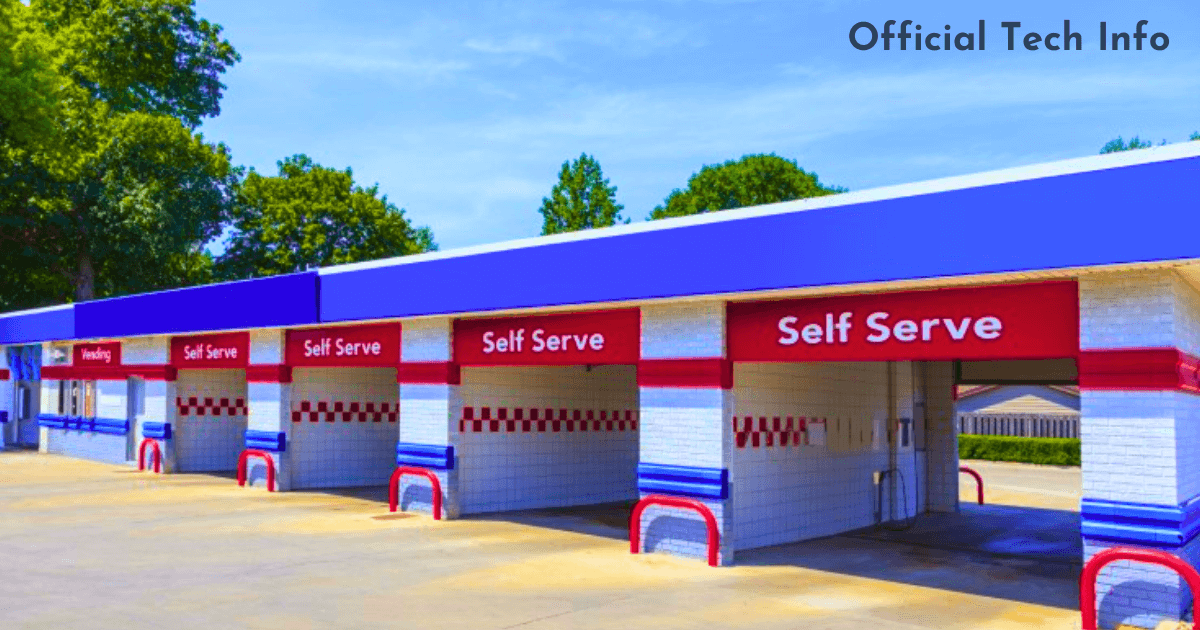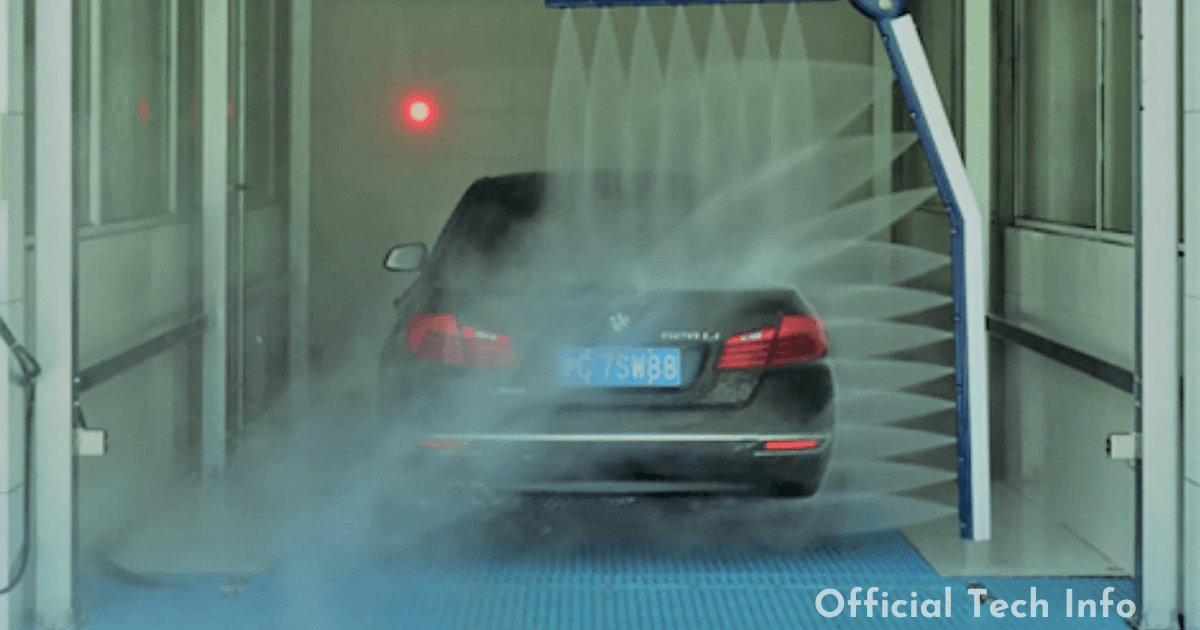Are car washes bad for your car?
Are car washes bad for your car? A lot of car owners have different opinions on this question. Some say that car washes damage the paint on your car, while others say they can’t live without their weekly wash.
Learn the truth about Are car washes bad for your car. And how they affect your car, expose some myths, and get all the information you need to maintain a clean car.
The Importance of Keeping Your Car Clean
It’s not just for looks to keep your car clean. Things like dirt, grime, bird droppings, and road salt can damage the paint on your car and make it rust over time.
A clean car also stays in better shape and runs better than one that hasn’t been taken care of. But it does matter how you clean your car.
Types of Car Washes
There are different kinds of car washes, and each has its pros and cons. Understanding these things can help you make a smart choice.
Automatic Car Washes:
Pros
- Easy access: It’s easy and quick to use an automatic car wash. After you pull in, your car is clean in a short time.
- Value for money: In comparison to professional hand washes, they aren’t too expensive.
Cons
- The chance of harm: The cloth strips and brushes can damage the paint on your car. This can make the finish look dull over time.
- Not cleaning regularly: Some parts of your car might not have been cleaned all the way, especially around the mirrors and other parts that come out.
Hand Wash: Is It Better?
Pros:
- Very good cleaning: For more attention to detail, washing by hand is better. You can clean every little corner.
- Not as rough: Hand washing is better for your car’s paint if you do it right.
Cons:
- Takes a lot of time: It takes longer and more work to wash your hands.
- Needs skill: Hand washing can also leave scratches and swirl marks if it’s not done right.
Self-Service Car Washes:
Self-service car washes are a middle ground between automatic and hand washing. You wash your own car with the tools that are given to you.
Pros:
- Control: You have control over the process and can give more attention to parts that need it.
- Value for money: Cheaper than having someone wash your hands for you.
Cons
- The chance of harm: Scratches can still happen if you don’t use the tool correctly.
- Required work: Needs more work than automatic car washes.
Touchless Car Washes: Are They Effective?
Instead of brushes, touchless car washes use high-pressure water jets and soaps.
Pros:
- Paint-friendly: Scratches are less likely to happen when there are no brushes.
- Easy to use and quick: In terms of speed and ease, it’s like automatic car washes.
Cons:
- Not as useful: Could leave behind some dirt and grime, especially spots that won’t go away.
- Use of chemicals: If you use the detergents a lot, they can damage the paint on your car.
The Impact of Car Washes on Your Car’s Paint
Scratches and Swirl Marks
A lot of people worry that car washes will leave scratches and swirl marks on their cars. Especially, automated car washes have been known for making these problems happen.
These car washes use brushes that can pick up dirt and other things that can then be dragged across your paint, leaving scratches and swirl marks that you can see.
Some car washes use high-pressure water jets that can push dirt particles against the paint and make tiny scratches that build up over time.
Chemical Damage
The chemicals that are used in car washes can also damage the outside of your car. Detergents and cleansers that are harsh enough can remove layers of wax and sealing compound, leaving the paint open to the weather.
This can cause fading, oxidation, and a dull look over time. Also, these chemicals can damage other parts of your car, like the rubber seals and plastic trim, making them dry out and crack.
Water Spots and Residue
Water spots and film left on the car after washing are another common problem. Many automated car washes use recycled water, which may have minerals and other impurities in it.
When this water dries on your car, it can leave spots and streaks that look bad. This will not only make your car look bad, but it could also cause long-term damage if you don’t fix it right away.
How to Minimize Damage from Car Washes
Follow these tips to keep damage to a minimum:
- Use excellent products: Use excellent car wash soap and clean, soft cloths or mitts whether you wash your car by hand or at a self-service station.
- Rinse very well: To keep the paint from getting scratched, rinse your car before you wash it.
- How to dry right: To dry your car without leaving water spots or streaks, use a clean, soft towel.
- Regular waxing: Waxing adds another layer of protection to the paint on your car.
Choosing the Right Car Wash
Choose the right car wash based on your needs, such as how convenient it is, how much it costs, or how well it takes care of your car’s paint. Automatic car washes are quick and cheap, but they are more likely to damage your car. It takes time to wash your hands thoroughly and gently. While touchless car washes are nice, they might not clean as well.
You should think about your budget, the age and condition of your car’s paint, and how much time you’re willing to spend washing your car.
Common Myths About Car Washes Busted
Some common myths about car washes need to be busted:
- Myth: It’s always bad for your car to use an automatic car wash. Modern automatic car washes are made to be kinder to your car, though they can still scratch it.
- Myth: It’s always better to wash your hands. If you don’t wash your hands properly, they can do just as much damage as an automatic washer.
- Myth: During the winter, you don’t need to clean your car. It’s even more important to wash your car often in the winter when salt and grime can do a lot of damage.
Case Study: The Long-Term Effects of Car Washes
A study by the International Detailing Association looked at how different ways of washing cars affect the paint over time.
There were three groups of cars in the study: those that were only washed at automated car washes, those that were washed by hand, and those that were washed with touchless systems.
According to the researchers, the paint on the cars was checked on a regular basis for two years.
Automated Car Washes Case Study
Most of the damage was seen on cars that had been washed by automatic car washes. There were a lot of scratches and swirl marks in the paint on these cars, mostly on the hood, roof, and trunk.
The researchers said that this damage was caused by the rough brushes and debris that get stuck in these kinds of car washes.
In addition, the paint was more likely to be damaged by the environment because of the chemical residue left over from the detergents used in automatic car washes.
Hand Washes Case Study
The cars that were washed by hand looked much better. There were fewer scratches and swirl marks in the paint, and it looked glossier and brighter overall.
Hand washing made the cleaning easier, and using soft cleaning tools and good products helped keep the paint’s quality. The researchers said that the cars in this group were in excellent condition because they were waxed regularly and dried properly.
Touchless Car Wash Systems Case Study
Touchless car washes landed in the middle. Some small scratches were visible on these cars, but not as many as on cars that had been washed by machines.
While the high-pressure water jets did a good job of getting rid of surface dirt, they did push things against the paint sometimes, which caused small scratches.
The researchers discovered that touchless systems kept the wax layers in better shape than automated washes because they used chemicals that were not as harsh.
My Personal Tips For Car Owners
Based on the study’s results and the advice of experts, here are some useful tips I have for people who own cars:
- Stay away from automatic car washes: If you can help it, stay away from automatic car washes, especially ones with brushes. Feel free to use touchless or hand washes instead.
- Check out the car wash facilities: Before you use a car wash, check to see if it is clean and if the equipment is in good shape. Make sure that the cleaning tools, like brushes, are in good shape and free of any dirt or dust.
- Use Good Products: Use good car wash soap, wax, and microfiber towels when you wash your car at home. Do not use laundry detergents on your car paint; they may be too harsh.
- Maintaining regularly: Washing, waxing, and checking the outside of your car for signs of damage should all be part of regular maintenance. If you take care of small problems right away, they might not grow into big ones.
What are the best car wash products?
1) Adam’s Car Wash Shampoo:
This all-around winner has a great lather, great suds, and a nice scent. If you wash your car by hand or with a foam lance, Adam’s Car Wash Shampoo works great.
2) Rain-X Spot Free Car Wash:
Rain-X does a great job if price is important. This soap may not make as many suds as others, but it cleans your car well and doesn’t leave many water spots.
3) Chemical Guys Mr. Pink Super Suds:
This soap makes a thick foam that makes washing your car a breeze. It works great with power washers. If you use a foam lance with it, it will wash your car automatically.
4) Armor All Car Wash Formula:
This soap is a good choice because it cleans without leaving streaks and works well with both hand washing and foam guns.
5) Meguiar’s Ultimate Wash & Wax:
This product cleans and waxes your car all at once, so it stays looking great and protects the finish.
FAQs
Are automatic car washes bad for your car?
Not all car washes are safe, although. Some might not be worth the risk. If you don’t clean your car properly after using an automatic car wash, the water can damage the paint.
Water can scratch the paint if you don’t dry it completely after washing it. These scratches will show up later.
Can a car wash damage your engine?
In general, if you use good technology that has been set up correctly, your car wash won’t do any harm.








